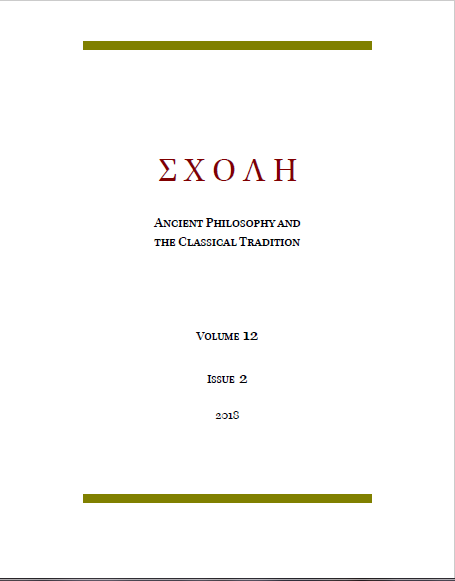THE CHRIST-LOGOS QUESTION IN AMELIUS
THE CHRIST-LOGOS QUESTION IN AMELIUS
Author(s): José María Zamora CalvoSubject(s): Metaphysics, Ancient Philosphy, Philosophy of Religion
Published by: Новосибирский государственный университет
Keywords: Amelius; Christ; Logos; Intellect; Demiurge; Neoplatonism;
Summary/Abstract: The main thesis of Christians, according to which Jesus is the divine Logos, the Son of God, is unacceptably illogical for Plotinus closest disciples. The irrationality of Christian doctrine lies in having identified a unique, personal and corporal individual with the divine principle. Such a statement implies identifying God himself with something passive and irrational, which is inadmissible to Amelius and Porphyry. Amelius helps Plotinus to answer the Gnostic Christians attending the school of Plotinus. In his Praeparatio Evangelica (XI.19.1–8) Eusebius refers to Amelius’ comment to the prologue to the Gospel of John. Unlike Numenius, for whom the demiurgic intellect, compared to Zeus, is the second cause of what comes to be, for Amelius, this second cause is the logos, which is the formal cause (kath’ hon), the efficient cause (di’ hou) and the material cause (en hôi) of what comes to be. Amelius links this conception of logos – which is being, life and thought – with Heraclitus (DK 22 B1) and with the prologue to the Gospel of John. Likewise, Amelius, based on the interpretation of Timaeus (39e7–9), established a triad of the demiurgic intellects (= the three Kings of the apocryphal Second Letter). In his Neoplatonic rereading, the logos of the beginning of the fourth Gospel has a very similar function to that performed by the world soul. On the one hand, it is the supreme cause of all the things which come to be, and, on the other hand, redirects its energy towards the superior god from which it comes.
Journal: ΣΧΟΛΗ. Философское антиковедение и классическая традиция
- Issue Year: XII/2018
- Issue No: 2
- Page Range: 365-379
- Page Count: 15
- Language: English

